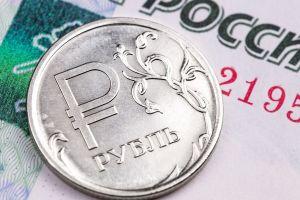Russian Banking Disclosure May Drive More Citizens to Crypto
The Russian government has revealed plans that could see it gain access to citizens’ confidential banking data – in a development that some think will drive Russians a step closer to cryptocurrencies.

The move comes shortly after forecasts indicated that socially distancing Russians, whose coronavirus lockdown has now been extended until at least May 11, would step up crypto trading next month, when much of the country also shuts down for a series of public holidays.
But per media outlet Izvestia, the Russian Interior Minister has approached the country’s Central Bank with a proposal that would allow the ministry to access the bank’s confidential accounting records.
The ministry says that the currency information transfer process is slow, and allows would-be tax dodgers to evade the attention of law enforcement agencies. It says the move would “strengthen the cooperation” between banks and the government, and stop the withdrawal of billions of rubles to overseas or offshore accounts.
The Central Bank told Izvestia that it is skeptical about the notion, and said it saw no need to expand the powers of the ministry. The bank added that the move could affect the public’s confidence in the banking system.
RBC adds that many believe that the ministry’s move, if successful, could “lead to an increase in demand for digital money.”
The report’s author notes,
“People will want to protect the confidentiality of their data, so they will resort to converting their savings from fiat to cryptocurrency.”
Meanwhile, across the border in Ukraine, where the government has taken a very different approach to crypto regulation, financial officials have hit a roadblock in their efforts to introduce crypto transaction monitoring.
Per a report from media outlet ForkLog, Blockchain4Ukraine, an association of companies and experts assisting Kyiv with its crypto policy implementation, has claimed that even though a new anti-money laundering and anti-terrorism law came into force in Ukraine on April 28, the government has so far failed to implement an accompanying monitoring platform for scrutinizing (and identifying potentially fraudulent) cryptocurrency transactions.
Kyiv had originally claimed the monitoring platform would be operational by the end of this month, but has thus far provided no explanation for the delay.




